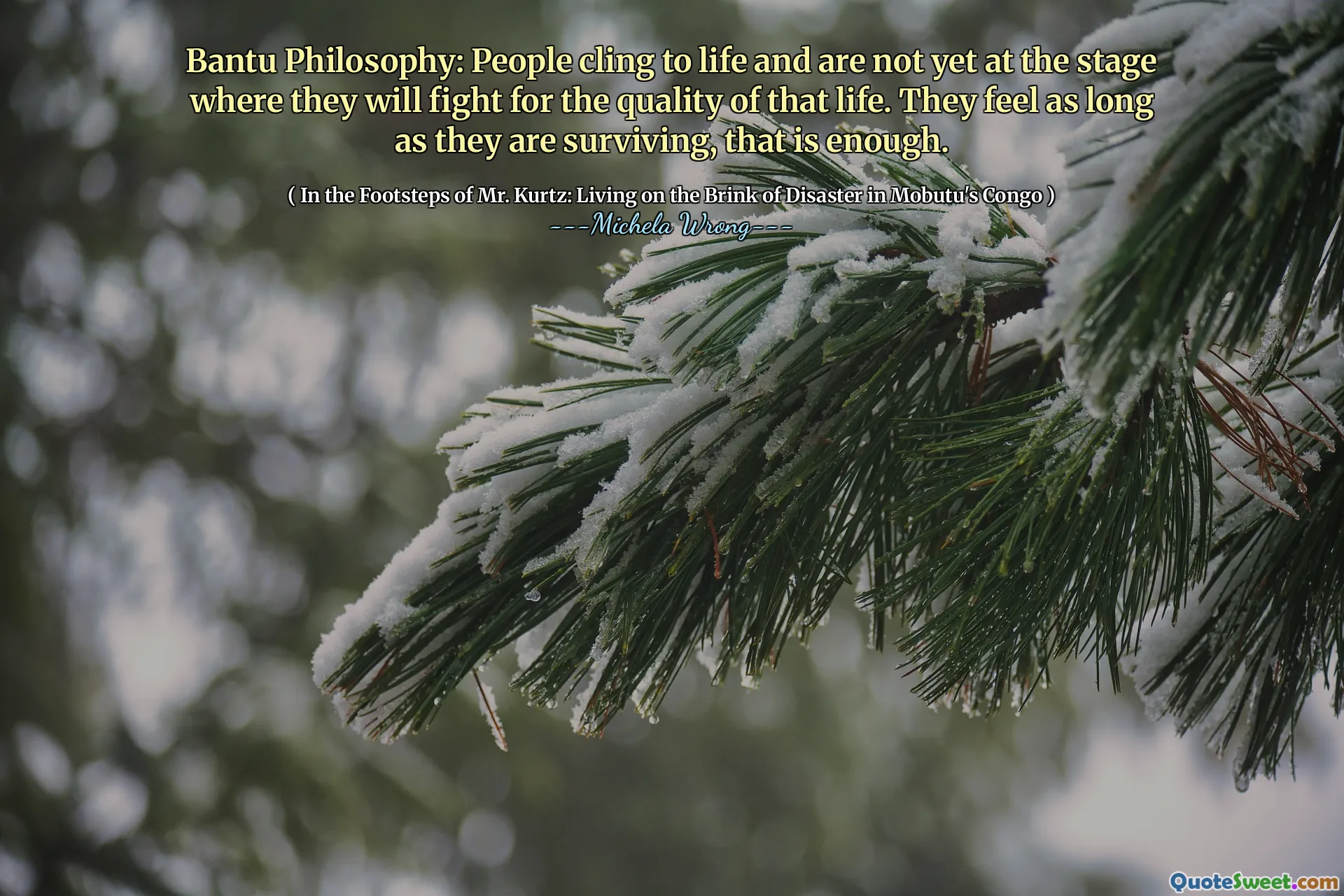
Bantu Philosophy: People cling to life and are not yet at the stage where they will fight for the quality of that life. They feel as long as they are surviving, that is enough.
This quote offers a profound insight into the mindset and cultural perspective prevalent among certain communities, specifically referencing Bantu philosophy. The emphasis on survival rather than the pursuit of quality life reflects a worldview deeply rooted in foundational human needs and resilience. It suggests that in some societies, the primary concern is simply maintaining existence amidst various hardships, possibly due to historical, social, or economic factors that prioritize endurance over aspiration. This perspective can be both a source of strength and a point of cultural limitation; the acknowledgment that survival is a victory in itself indicates a resilience forged through adversity. However, it also highlights a potential complacency or a stage of development where aspirations for improvements in quality of life have not yet become a priority or are perhaps hindered by external circumstances. Understanding such philosophical views is crucial, especially in cross-cultural dialogues, because it challenges the often Western-centric notions of progress that equate quality of life with material success or technological advancement. The quote invites reflection on how different societies perceive well-being and progress and challenges us to consider that the valuation of life can be multifaceted. It prompts us to think about the importance of resilience, the psychological impact of survival, and how cultural values influence perceptions of happiness and fulfillment. Recognizing these differences can foster greater empathy and more nuanced approaches to development and aid efforts, as they must be tailored to align with local values and expectations, acknowledging that sometimes, simply staying alive is the ultimate achievement.






